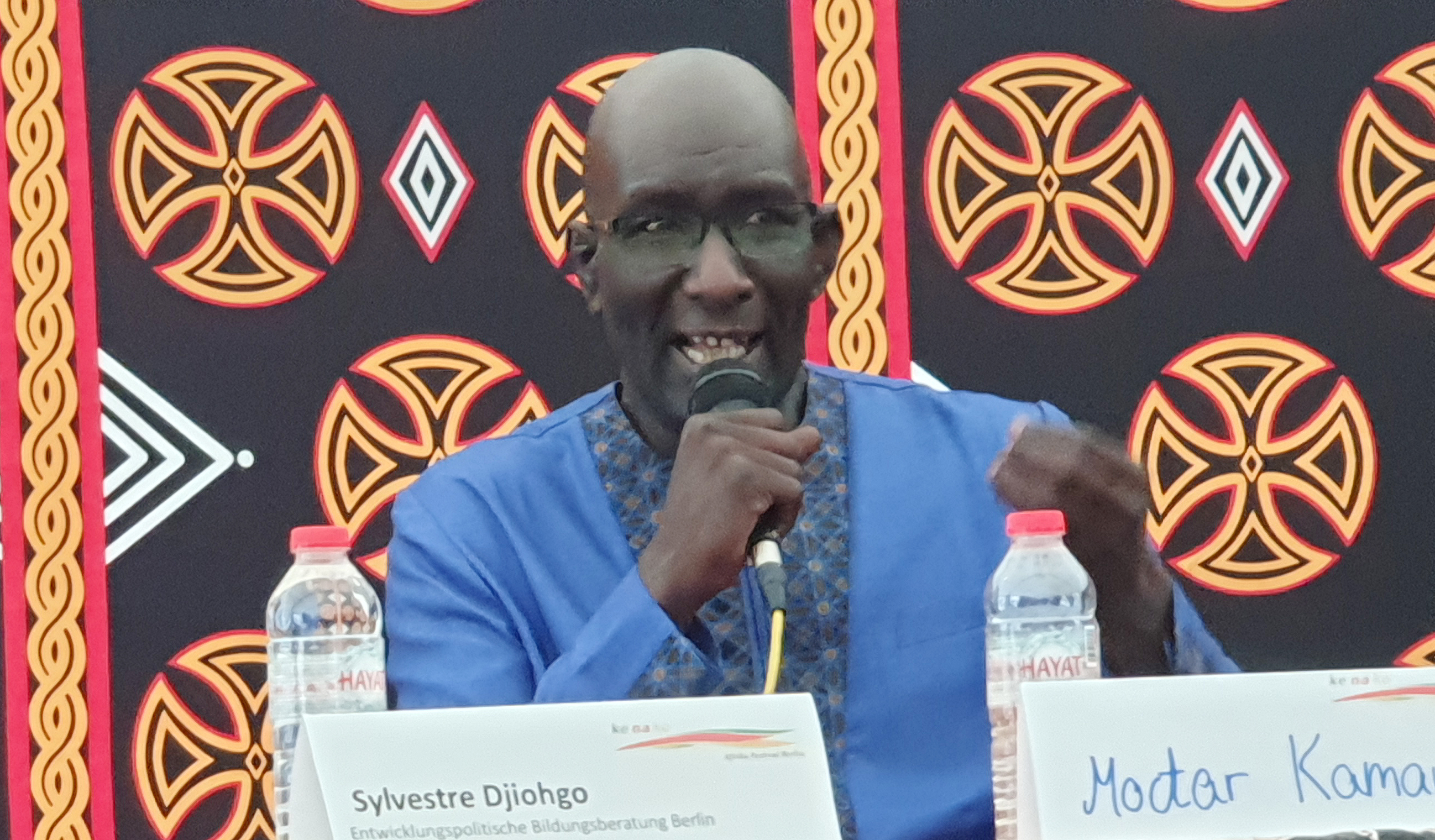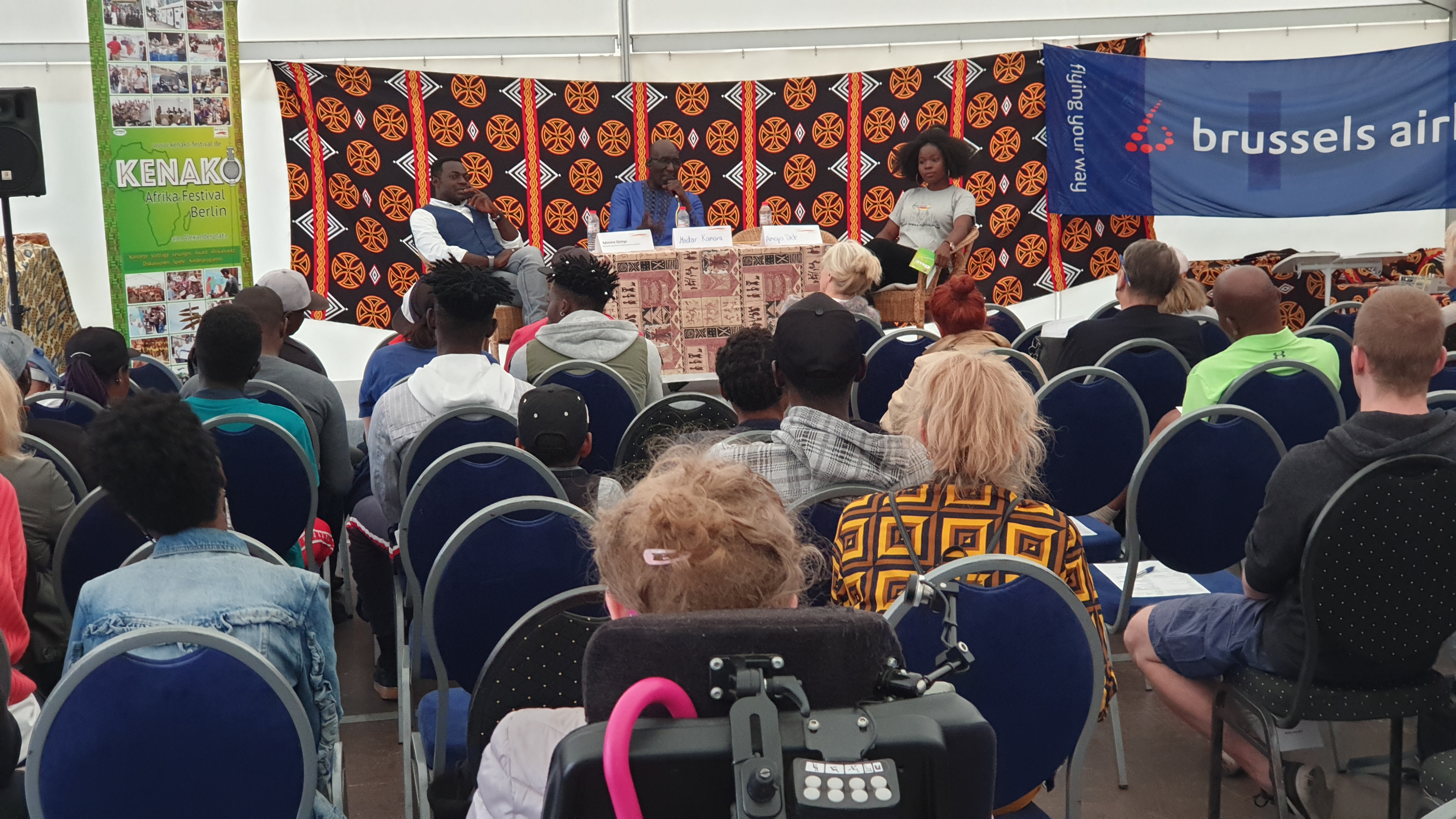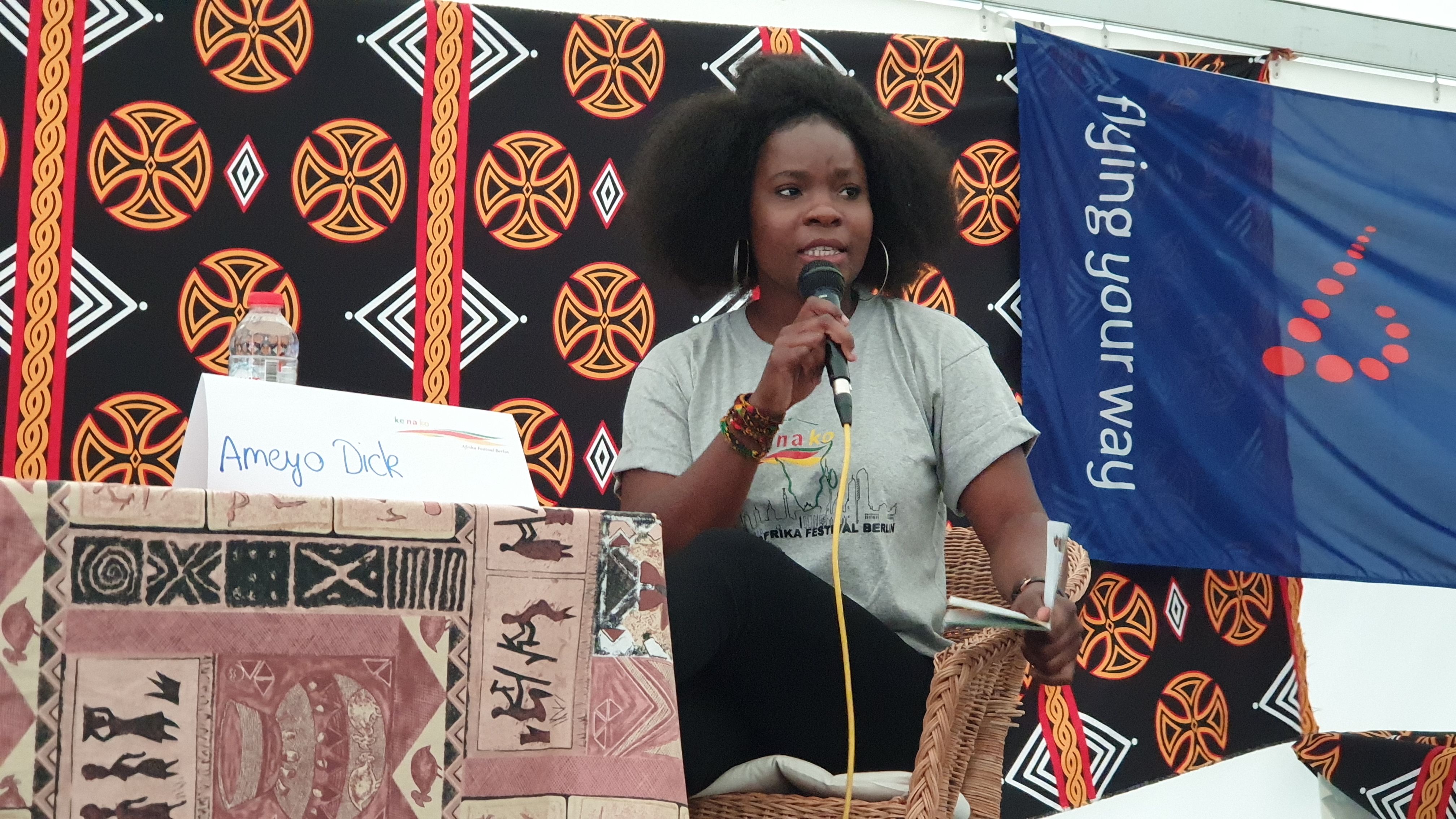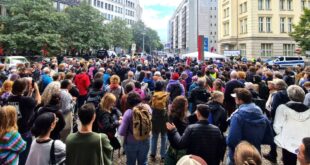The 12-day Kenako Afrika-Festival, featuring live music concerts, bazaar, children’s workshop, culinary, fashion shows and more, ended on 14 July in Berlin.
While the annual event celebrates Africa’s colourful, multi-facetted and rich cultures, it also takes a serious look at issues affecting the continent and its diaspora.
The 2019 festival, under the motto ‘Africa in Global Context’, featured podium discussions on issues of African development and the situation of people of African descent in Germany.
A panel of three, comprising Moctar Kamara, Sylvester Djiogho and Ameyo Dick, discussed the topic “Africans as actors in German society and in Africa” in one of the podium forums.

Kamara, the immediate past chairman of the Central Council of African Communities in Germany (Zentralrat der afrikanischen Gemeinde in Deutschland e.V.), estimated that about 1 million people of African origin were in the country.
The Senegalese-born African community leader described actors as people who convey the message of their group to mainstream society.
Kamara observed that even though people of African origin were represented in all sectors of society, including politics, economy, media and civil engagement today, they were not recognized as a distinct group in society and the media.
“Africans are not respected which discourages them from asserting themselves,” he observed. “It’s even difficult for Black people to recognise themselves as important contributors because of the structural hindrances in society such as stereotyping and racism.”
Kamara, who is also the initiator of the annual memorial march in Berlin commemorating the African victims of enslavement, colonialism and racist violence, also talked about the difficulty of building a united African association in the country.

However, there were many national associations and professional groups in the community that were working for an increased Black visibility in Germany, he noted.
In his contribution, Djiogho, a political scientist, said low expectations from Black people in German society leads to their rejection. “This is why we often get asked if we speak German,” he noted. Cameroon-born Djiogho, who is the CEO, InterEPCO Eventmanagement & Consulting, talked about the surprise on the face of people if they entered his office and saw a Black man behind the desk, narrating his experiences.
Djiohgo was of the view that Africans must do more to be recognized. “Young people should be encouraged to do their best as they will be recognized,” Kamara opined, explaining that the situation of Black people had improved significantly compared to about 23 years ago when he first arrived in the country. “Young people born and socialized in Germany have lower hurdles than the older generation.”

Ameyo Dick, whose parents are from Togo, added that young people had the advantage that there were good role models who had shown that it’s possible to make it in Germany.
The isolation of young people of African origin should be broken by bringing organizations such as the Association of Black People in Germany (Initiative Schwarze Deutsche or ISD) to every place where Black people live in the country, Kamara advocated. “Festivals also play a role in breaking the isolation of Black people,” he noted, praising the organisers of the Kenako Afrika-Festival. “Festivals have an important networking function.”
Dick mentioned remittances, knowledge transfer and the facilitation of trade and investment as important contributions of the diaspora to African development.
However, Africa must unite to be able to develop at the pace that its people desired, said Kamara. And “they must develop their own development strategies”.
Femi Awoniyi
 THE AFRICAN COURIER. Reporting Africa and its Diaspora! The African Courier is an international magazine published in Germany to report on Africa and the Diaspora African experience. The first issue of the bimonthly magazine appeared on the newsstands on 15 February 1998. The African Courier is a communication forum for European-African political, economic and cultural exchanges, and a voice for Africa in Europe.
THE AFRICAN COURIER. Reporting Africa and its Diaspora! The African Courier is an international magazine published in Germany to report on Africa and the Diaspora African experience. The first issue of the bimonthly magazine appeared on the newsstands on 15 February 1998. The African Courier is a communication forum for European-African political, economic and cultural exchanges, and a voice for Africa in Europe.

































